skip to main |
skip to sidebar
 VATICAN CITY - Pope Benedict, speaking just 10 days ahead of Italy's national elections, lashed out against gay marriage and abortion on Thursday and said the Church had the right to speak out on thorny political issues.
VATICAN CITY - Pope Benedict, speaking just 10 days ahead of Italy's national elections, lashed out against gay marriage and abortion on Thursday and said the Church had the right to speak out on thorny political issues.
Opposition centre-left politicians who advocate some legal recognition of the rights of unmarried heterosexual and homosexual couples accused the Pope of meddling in politics.
Addressing lawmakers from the European People's Party (EPP), Benedict said the Church's position on such issues was "non-negotiable".
He said the Church had a right and duty to defend "the recognition and promotion of the natural structure of the family as a union between a man and a woman based on marriage".
It would oppose "attempts to make it juridically equivalent to radically different forms of union which in reality harm it and contribute to its destabilisation", he added.
Opposition politicians slammed the Pope's words on abortion and gay marriage as political interference.
"It is ever more clear the Church hierarchy have decided to jump in to the election campaign", said Daniele Capezzone of the leftist "Rose In the Fist" party, part of a coalition led by former European Commission President Romano Prodi.
"It is people who decide whether their relationships constitute a family ... Not everyone shares the Pope's point of view," said Franco Grillini, a homosexual and parliamentarian of the Democrats of the Left, Italy's largest leftist party.
Centre-right Prime Minister Silvio Berlusconi is a member of the EPP. He had been due to attend the audience but backed out earlier this month after opposition leaders said it would amount to a de facto papal blessing for his re-election campaign.
The Pope said the Church was not interfering, but "enlightening consciences".
He asked lawmakers to defend its right to proclaim what he said were principles "inscribed in human nature itself and therefore ... common to all humanity".
"Your support for Christian heritage ... can contribute significantly to the defeat of a culture that is now fairly widespread in Europe, which relegates (religion) to the private and subjective sphere," he said.
A survey released earlier this year cast doubt on how much influence the Church will have on the elections, with a majority of Italian Catholics disagreeing with papal doctrine on some moral and social issues.
But last summer, a referendum on easing Italy's restrictions on artificial fertility failed when too few people turned out to vote -- a victory for the Church, which had called on people to abstain in a campaign explicitly supported by the Pope.
Leaders of Berlusconi's coalition, which sees itself as the natural home for Roman Catholic voters, defended the Pope.
"This controversy is unfounded and out of place," said Deputy Prime Minister Gianfranco Fini.
"Who can argue with the Holy Father's moral and religious authority to defend values and concepts that are fundamental to Church doctrine."
from Reuters
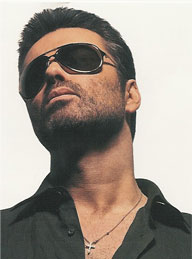 George Michael has been cautioned by police for having cannabis in his car.
George Michael has been cautioned by police for having cannabis in his car.
The singer, 42, admitted the offence at an early-morning meeting with officers at Belgravia police station rather than West End Central - where he was questioned after his arrest on 26 February - to allow him to avoid publicity.
He was held after being found slumped at the wheel of his Range Rover at Hyde Park Corner.
After his arrest he said: "It was my own stupid fault.
"I was in possession of class C drugs which is an offence and I have no complaints about the police, who were professional throughout."
A witness who saw the singer in his car said at the time: "George was completely out of it - he was all over the place. He was found with his head slumped against the wheel. No one could rouse him. He was virtually unconscious. When the police came he could hardly speak."
In 1998 Michael was arrested for lewd conduct after propositioning an undercover police officer in a public lavatory in Beverly Hills.
The singer was fined £450 by a US court and ordered to do 80 hours community service.
The offence marked a shift in his career, publicly confirming for the first time that he was gay. He later sent himself up in a music video portraying the arrest with the song Outside.
from The Evening Standard
 NASSAU, BAHAMAS - A Bahamian government board's decision to ban the movie "Brokeback Mountain" has prompted charges of discrimination and censorship in the island chain.
NASSAU, BAHAMAS - A Bahamian government board's decision to ban the movie "Brokeback Mountain" has prompted charges of discrimination and censorship in the island chain.
Gay rights groups and others have called on the Plays and Films Control Board to reverse its decision prohibiting theaters from showing the award-winning movie about a troubled love affair between two cowboys.
"You have a group of people who are telling grown men and women what they can and cannot watch," said Philip Burrows, a theater director in the island chain. "I cannot understand denying people the right to make their own choices."
Theaters in Nassau, the capital, had already begun to advertise the movie Friday when the board announced its ban at the request of the Bahamas Christian Council.
"The board chose to ban it because it shows extreme homosexuality, nudity and profanity, and we feel that it has no value for the Bahamian public," Chavasse Turnquest-Liriano, liaison officer for the control board, said Wednesday.
The Rainbow Alliance, a gay rights group, called the ban a "farce," and said most Bahamians reject the idea that a "small group of appointed individuals ... can provide the moral compass for the entire country."
Some have suggested the board could have simply issued a rating that would have barred anyone under 18 from seeing the film.
Critics also noted that even some countries where homosexuality is illegal have allowed the movie to be shown in theaters.
"This is not a movie to be banned. This is not a subject to be censored," said Bahamas resident Liz Roberts, who has worked in film production. "It is a subject to be aired, a subject to be confronted openly."
"Brokeback Mountain," which won critical acclaim and three Oscars, including best director for Ang Lee, has also been banned in mainland China. Turkey has restricted viewing to viewers over 18.
from The Seattle Post-Intelligencer
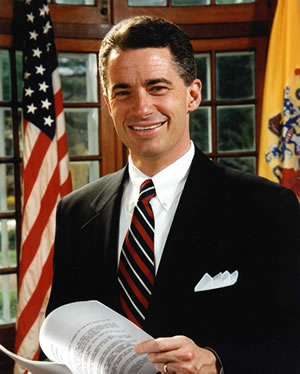 Former Gov. James E. McGreevey's tell-all memoir about his secret life as a closeted gay politician is scheduled for release Sept. 19, his spokesman confirmed yesterday.
Former Gov. James E. McGreevey's tell-all memoir about his secret life as a closeted gay politician is scheduled for release Sept. 19, his spokesman confirmed yesterday.
The former governor and his co-author, former investigative reporter David France, have turned in a manuscript to editors. Amazon.com is already accepting advance orders for the 384-page hardcover at $16.98 (the list price is $26.95.)
The book will span the 48-year-old McGreevey's life from his childhood as the son of a nurse and former Marine Corps drill instructor to his rise and fall in politics and the aftermath of his nationally televised "I am a gay American" speech," according to state Sen. Ray Lesniak, a friend of the former governor's.
"It's a very authentic and soulful presentation of his life," Lesniak said, adding he had read excerpts but not a complete draft. "When he made the decision to do the book, he knew he had to be totally honest, not only with the public, but with himself. Thus the title ... It spans his whole life because his time as governor was very much influenced by his whole life."
The book will include details about McGreevey's gay sex life and his efforts to keep his homosexuality hidden through two marriages and a political career that took him from Woodbridge Town Hall to the Statehouse, according to two people familiar with the book. The sources requested anonymity because they are not authorized to discuss the book prior to publication. A spokesman for the publisher, Regan Books, an imprint of HarperCollins, did not respond to requests for comment.
McGreevey stunned the nation in August 2004 with his televised confession that he'd had an adulterous affair with a man. His aides identified the man as Golan Cipel, his former homeland security adviser.
Lesniak said that in addition to McGreevey's struggles in his personal life, New Jersey politics will feature prominently in the book.
"Politics was a big part of his life, so it's a big part of the book," Lesniak said. He added, "There are some people who do not come across well in the book, as you can imagine."
McGreevey declined to comment yesterday through his spokesman, Scott Widmeyer. The former governor, Widmeyer said, will do interviews later this year as part of a book tour.
Booksellers contacted yesterday said it was hard to predict demand for the book.
Logan Fox, owner of Micawber Books in Princeton, said one thing is certain: he will not be pre-ordering the 500 copies that he stocks for a Harry Potter release.
"Maybe 15 or 20," he said. While the popular J.K. Rowling series is a sure thing for booksellers, anything else -- even former President Bill Clinton's memoir -- is dicey.
"I have no clue as to whether this book will be of tremendous interest or mediocre indifference. If you ask me if I'm going to sell 10 or sell 100, my answer is I don't know," Fox said. "With the Bill Clinton bio, we sold 20 or 25 in the first couple of days and then three in the next nine months."
Lori Buzby, owner of the Califon Book Shop in Califon, said interest in McGreevey's story may already have waned.
"It's the kind of thing where, I think, we heard most of what happened. I can't see that there would be a huge interest and political memoirs don't do too well -- in my store. Then again, it depends on who it is. Christie Whitman's did really well and Bill Clinton's and Hillary's books did well too. Maybe I'll be surprised. Of course, I'll stock a couple. And we'll see," she said.
from The Star-Ledger
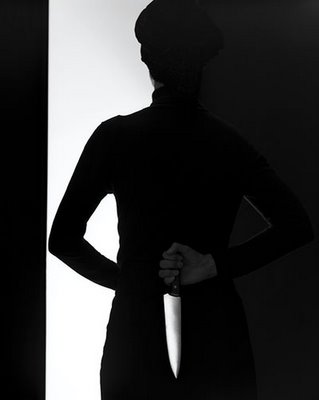 A murder case in the Florida Keys led authorities to Morgan County, where the suspect’s girlfriend aided in his capture, officials said Tuesday.
A murder case in the Florida Keys led authorities to Morgan County, where the suspect’s girlfriend aided in his capture, officials said Tuesday.
Jennifer Long said she was shocked to learn Key West authorities had implicated her boyfriend, Johnny Ray Holt, 24, of Somerville in the March 20 shooting death of former college professor Rodger Frederick Keller.
Morgan County Chief Deputy Mike Corley said the firearm used in the slaying was reported stolen from a Danville home March 17.
Long, 23, said her father owns the home on Liberty Road.
Holt stole jewelry, antique coins, three firearms and the pickup he used to drive to Key West, according to Corley.
“I can’t believe this,” Long said. “We dated for about four months. He didn’t have a temper. He never hit me or nothing.”
Holt is from Murfreesboro, Tenn., Long said. The couple met while working together. Long reported Holt missing to Somerville police March 18, after he had been gone for a day.
Long said she doesn't know of a connection between Holt and Keller, 63, although authorities said they found nude photos of Holt inside Keller's home.
"Everybody struggles," Long said. "We were struggling. Apparently he got paid that day. I don't see why he felt the need to do something this crazy. He had no (substance abuse) problem to my knowledge."
Long said she learned of the slaying Friday.
"The cops called here telling me of the new developments," she said. "He was a nice guy. I thought he was perfect."
Key West police said Holt lived on the island about two years ago and met Keller there. In an affidavit released Tuesday, Key West detective Brenda Sellers said Holt lived with Keller and, when he moved out, allegedly took a house key and forged eight checks totaling $8,700.
Key West police said Keller, on the day of his death, left a garden club where he volunteered.
Witness Michael Sox was walking near Keller's home. He saw the victim arrive in his car, walk into his backyard and then into his home. Sox heard a loud bang, presumably a gunshot. He then rang the doorbell, but no one answered.
Sox, who is homeless, witnessed a man fitting Holt's description leaving the residence in Keller's car. Sox, who knew Keller, told construction workers nearby and a neighbor what he'd heard and seen — blood splattered on the floor of the home — but they refused to help him contact authorities, police said.
Sox walked away from the home and returned early Thursday, finding two newspapers on the ground and Keller's car missing. He called police from a pay phone, and officers found Keller's slightly decomposed body covered with a bedspread in the floor of his master bedroom.
Police found a rug placed over a pool of blood and bloody shoe prints leading to the front door and an intact .44-caliber bullet lodged in the bedroom wall. The medical examiner said Keller was shot in the chin from a distance of no more than two feet and that he died within minutes of the shooting.
Police said they found a file labeled "Johnny Holt" inside the home. The file contained documents to the 2004 theft, phone records and three color photos of Holt nude inside Keller's home.
"One of the photos shows the defendant curled up nude on a bed," the affidavit states. "The bedspread on the floor (in the photos) is the same bedspread that was found covering the victim at the scene."
A Key West Citizen story published March 25 quoted a horticulturist who worked with Keller at The University of Michigan. Corley said Keller was a former professor there.
The report said Keller loved gardening, "had a knack for taking in stray people" and was "an openly gay man" who could be militant about his lifestyle and was not ashamed of how he lived.
Holt allegedly abandoned Keller's car a short distance from the crime scene and used the stolen pickup to travel north to Crisp County, Ga.
Police said they found items stolen in Danville in the truck, along with .44-caliber bullets and one empty casing consistent with he type and caliber found at the scene.
Crisp County authorities arrested Holt at a restaurant, Corley said, after he had sent Long mobile phone text messages and money through a wire transfer. Authorities tracked Holt via his mobile phone communications.
When Key West police asked the Morgan County Sheriff's Department to help find Holt, they discovered he was already in custody in Georgia on burglary and theft charges from Morgan County.
"It just hurts so bad," Long said. "People watch this on television. I was willing to help authorities in this. It was the 100 percent right thing to do."
Holt remained in Georgia without bond with Florida charges of first-degree felony murder with a firearm, robbery with a firearm and burglary of a dwelling with a firearm. Corley said the murder charge will take priority over the Morgan County charges.
from The Decatur Daily
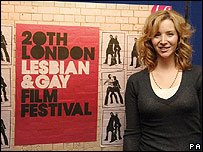 Former Friends star Lisa Kudrow was on hand to launch the 20th London Lesbian and Gay Film Festival.
Former Friends star Lisa Kudrow was on hand to launch the 20th London Lesbian and Gay Film Festival.
The actress was in the capital's West End to promote her film Happy Endings, which also stars Steve Coogan.
The film features Kudrow as a neurotic counsellor at an abortion clinic, who is blackmailed over an affair with her now-gay step-brother.
The festival, which celebrates the best of gay and lesbian cinema, runs until 12 April.
One of the strands of the programme explores transgender issues, and will feature Felicity Huffman's Transamerica alongside more avant-garde offerings.
Other films being shown during the event include the 1957 Western Forty Guns, starring Barbara Stanwyck, and Ang Lee's Oscar winner Brokeback Mountain
from BBC News
 MIAMI BEACH, FLORIDA - Busta Rhymes caused a scene in Miami Beach early Sunday when he went off on a gay man who tapped him on the shoulder to get his attention.
MIAMI BEACH, FLORIDA - Busta Rhymes caused a scene in Miami Beach early Sunday when he went off on a gay man who tapped him on the shoulder to get his attention.
According to the New York Post, Rhymes and his bodyguards were at the 11th Street Diner in Miami Beach early Sunday morning when the incident occurred. Located next door to popular gay club Twist, the restaurant was “packed with transvestites, gay men and drag queens, which obviously made Busta a little edgy," eyewitness Thomas Barker wrote in an e-mail to the paper.
"This became evident when a young gay guy came up behind Busta and tapped him on the shoulder to congratulate the rapper on his recent comeback,” Barker wrote. “Before the guy could even mutter a word, Busta turned around and repeatedly screamed, 'Why the fuck you touchin' me, man? Get the fuck away from me.'”
Barker says the rapper’s two bodyguards jumped into the situation by shoving the man away. Afterwards, Busta reportedly whispered to his bodyguards, 'I hate fucking faggots, man.’”
from Eur Web
 Many Canadians continue to view homosexuality as immoral, according to a new poll conducted for CanWest by Ipsos Reid.
Many Canadians continue to view homosexuality as immoral, according to a new poll conducted for CanWest by Ipsos Reid.
As the Regina Leader-Post reported, 54 per cent of respondents agreed with the statement that “homosexuality is morally acceptable.” That degree of acceptance ranged from a high of 69 per cent in Quebec to a low of 47 per cent in Saskatchewan.
Regina resident Duncan Campbell, a homosexual, thinks that these findings indicate that homosexuals still face a lot of intolerance and oppression.
“It really gives us an opportunity to look at ourselves and decide, as a province and as a larger community, what we think is important – and as a larger community, if what we think is important is intolerance and oppression, then we’re in trouble,” he told the Leader-Post.
London-based columnist Miles Douglas, himself a gay man, recently commented on the familiar struggles of homosexuals. He wrote in The Spectator that some gay males are acknowledging their “inner demons” as the source of the issues plaguing the lifestyle, such as depression, anxiety, alcohol and drug dependency, and suicide. This goes against a common perception that “residual prejudice” is the primary cause.
“For at a time when the mainstream is more welcoming than ever before, the ethos underlying gay life still militates strongly against integration. While demanding equality, it stresses separateness, holding up the idea of the gay community as part ghetto, part laager, a defensive subculture demanding our loyalty on quasi-ethnic grounds.”
Douglas also dismissed as a “simplistic narrative” the claim of the gay movement that their problems “do not arise from within ourselves, or from the choices we make, but from oppression by heterosexual society and anything perceived as traditional values.
“The result,” he argued, “is a male homosexual culture that is unable to address its own shortcomings. . . . In an age of equal rights, we have become our own victims, devoured by the movement we created.”
Melissa Fryrear, a gender issues analyst at Focus on the Family USA, spoke from experience when she described the need for hope for people struggling with homosexuality.
“Having personally lived homosexually for a decade, one of the most disheartening things looking back is that I never heard a message of hope . . . from the gay community or the Christian community,” Fryrear told Today’s Family News.” “In other words, I never heard the truth that homosexuality could be overcome.”
Fryrear believes her message that change is possible needs to be proclaimed and heard, rather than stifled out of fear or intimidation.
“The gay community was invested in hiding the truth and the Christian community was too intimidated to proclaim it. That is a tragedy. So my message today, along with thousands of other former homosexuals, is: Yes, if you are a gay man or lesbian and you ever become dissatisfied living homosexually, there is hope; homosexuality is something that can be overcome. There is hope.
from Novopress
 It may not be the "magic pill" to cure HIV and Aids, but circumcision could drastically reduce the rate of the killer disease.
It may not be the "magic pill" to cure HIV and Aids, but circumcision could drastically reduce the rate of the killer disease.
Researchers have found that the virus spreads faster in areas where male circumcision was not regularly performed.
Studies have found that HIV incidence in the entire population could be reduced by one-third if there was 100 percent circumcision rate among men. They found that 80 percent of male HIV infections in the world happened through the foreskin of the penis, which was more susceptible to scratches and tears during intercourse.
Conducted by Dr Thomas Quinn from the Johns Hopkins University in Baltimore in the US, the study focused on 137 uncircumcised men with HIV infected partners, and 50 circumcised men with HIV infected partners.
Of the uncircumcised men, 40 eventually became infected with HIV, but not one male among the circumcised group contracted the virus. The research was conducted in Orange Farm, south of Johannesburg, in 2003 and released in 2005 and the subjects were men aged between 18 and 24.
Researchers concluded that circumcision could offer 6 percent prevention from infection.
Fiona Scorgie, senior research fellow at the Centre for HIV and Aids Networking at the University of KwaZulu-Natal, said that Aids intervention specialists were taking the issue seriously.
But she cautioned that male circumcision was no "magic pill" to reduce HIV infections. There were many social and cultural factors to take into account, she said, chief among these was the logistics of implementing this intervention on a mass scale, if it should come to that."But given that our existing HIV prevention approaches (abstain, reduce the number of sexual partners, use a condom) are not having the kind of impact we need, perhaps it is time for us to begin to think creatively about whether new strategies are needed."
Risk Nyami Mbjele, an Aids counsellor at the Clermont Resource Centre, said circumcision would not protect women as they would still be at risk.
"I believe that condoms are safer; this would be high-risk behaviour and it would be wrong for people to believe in it. As Zulus, it is not part of our culture and culture is one thing that should also be considered.
Similarly, Sithembiso Mkhize, spokesperson for the Treatment Action Campaign in KwaZulu-Natal, said although circumcision was a part of many cultures, it was wrong to assume that it could stop the spread of HIV and Aids.
Mkhize said while there had been extensive research, it was something that should not be taken to heart because thousands of people, especially young adults, were at risk.
"We can't take chances with our lives, people are at a big risk whether they are circumcised or not. Use a condom and protect yourself and your partner."
Health department spokesperson Leon Mbangwa said it would be unrealistic to look at circumcision as a cure for the pandemic. "It wouldn't go well with the message we are trying to bring across right now - and that is to condomise. Our people must abstain, be faithful and not have unprotected sex."
However, Francois Venter, clinical director of the Reproductive Health and HIV Research at the University of Witwatersrand, who presented the Orange Farm research last year, urged the adoption of male circumcision as the most effective method for HIV and Aids.
But he said while the results were phenomenal, "we need to wait for another study to prove that it actually works".
"These studies are phenomenal, but male circumcision is not the only thing that will prevent HIV. It's just one of the things. Although the risk is still there, it decreases the infection rate."
from IOL
 MONTEREY, CALIFORNIA
MONTEREY, CALIFORNIA -
A man's pantyhose led to his arrest, authorities said. An unshaven man wearing a black evening gown, fishnet stockings, calf-high boots and a black wig robbed a USA Gas station Monday morning, authorities alleged.
The armed man stuffed $290 in cash into an ensemble-matching black purse.
"I've been with the department for 22 years, and this is the first time I've heard of this happening anywhere here," police Lt. Phil Penko said.
About 35 minutes after the robbery, police Officer Chad Ventimiglia spotted a black Saab with fishnet pantyhose hanging from the front driver's side door, dragging on the ground, investigators said.
The car was pulled over and Michael Leslie Clouse, 26, was arrested and booked for investigation of armed robbery.
A plastic replica handgun allegedly was found inside his purse, Penko said.
from ABC News
 The Rhode Island Department Of Education has banned a specific abstinence-only program for political reasons. "Political" reasons meaning, the program encourages students to wait until marriage to have sex, which of course doesn't leave much room for gay and lesbian, bi-sexual, or transgender kids. The program includes an anonymous "pre-test" which asks the students questions about their views on sex (which could easily be eliminated, rather than the entire program). The biggest problems are that the program promotes a view of sexuality that is supported by several religions, and (horror of horrors) encourages young ladies to dress modestly. I know. If these abstinence-only people have their way, we girls will all be wearing dresses to our ankles and condoms will be banned from the earth.
The Rhode Island Department Of Education has banned a specific abstinence-only program for political reasons. "Political" reasons meaning, the program encourages students to wait until marriage to have sex, which of course doesn't leave much room for gay and lesbian, bi-sexual, or transgender kids. The program includes an anonymous "pre-test" which asks the students questions about their views on sex (which could easily be eliminated, rather than the entire program). The biggest problems are that the program promotes a view of sexuality that is supported by several religions, and (horror of horrors) encourages young ladies to dress modestly. I know. If these abstinence-only people have their way, we girls will all be wearing dresses to our ankles and condoms will be banned from the earth.
What we're seeing here is the clash of two philosophies about the proper place for sexual expression, and the best way to handle the obvious social problems of teen pregnancy, the spread of STDs, single-parent homes, and the like.
On one side, you have the group of people who think that people should be free to have sex with anyone or anything they please. Privacy and all that. Their answer to the fact that the sexual revolution is threatening to destroy our society is to employ "safe sex" methods. Have sex with whomever, as long as you wear a condom. It also helps if women take the pill. Boom, that takes care of the huge problem of STDs and unintended children.
Unfortunately, condoms and contraceptives do not take care of every social problem caused by our free-sex-society.
* Disease: While condoms do prevent a wide variety of diseases and pregnancies if used successfully, they don't stop everything. Herpes and HPV (which causes genital warts) can both be transmitted even when a condom is worn because more of the skin can be affected than the area covered by the condom.
* Emotional/Relational issues. There's far more to worry about when having sex than just disease and pregnancy. Broken hearts, trust issues, divorce, and other difficulties in maintaining long-term, healthy, monogamous relationships can be linked to promiscuity.
While it sounds old-fashioned in today's age of sexual freedom, abstinence until marriage is truly the best way to avoid a host of social problems.
According to James Wagoner, president of Advocates for Youth:
"We've known for some time that abstinence-only is bad science, bad policy, and a blatant violation of medical ethics and basic human rights. And as more people find out what is being taught and what is being censored in these ineffective programs, more and more of these 'stay pure or we don't care about you' programs will be banned from public schools."
My goodness, this man is emotional! "Stay pure or we don't care about you?" I was under the impression that abstinence-only programs were more about saying, "Stay pure because we care about you."
To be fair, I don't know about this specific abstinence-only program. I don't know what it includes and what it leaves out. I'm all for abstinence-until marriage, but you can't just tell kids "Don't do it," and I tell kids, "Look. You will struggle. It'll be hard. But, in the long run, it's much easier, because you won't have children you're not ready to care for, you won't get a horrible number of diseases, you'll protect yourself from feeling used and stupid. You won't get used and dumped a dozen times until you hate every member of the opposite sex. But, I know that your have to do more than just tell kids, "Don't do it." That doesn't help them at all.
Abstinence programs should be comprehensive. By comprehensive, I don't mean, "Don't do it, but if you do, wear a condom." Students should be told about all the risks, physical, emotional, and relational, with good information and correct statistics. They should be told about what condoms can and cannot do. They should be taught more than just, "Don't do it," but should be given tools that will help them avoid situations where they'll be tempted. They should also be taught about what a healthy relationship looks like and learn tools on how to say "no" to unwanted sexual pressure.
By comprehensive, I don't mean, "Don't do it, but if you do, wear a condom." Students should be told about all the risks, physical, emotional, and relational, with good information and correct statistics. They should be told about what condoms can and cannot do. They should be taught more than just, "Don't do it," but should be given tools that will help them avoid situations where they'll be tempted. They should also be taught about what a healthy relationship looks like and learn tools on how to say "no" to unwanted sexual pressure.
There have always been and will always be kids who don't care, who just want to have sex - and who will do so. But, there are plenty of students who can exercise self-control, and who want to, and who should be taught what to do to help their futures and their marriages as strong and as healthy as possible. R.I. Department of Education to Commissioner Peter McWalters - a letter expressing problems with "Heritage Keepers Abstinence Education,"
from About
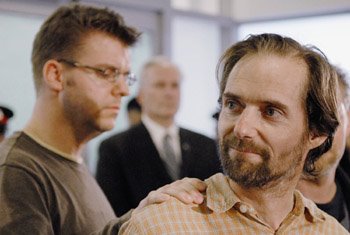 Fears that James Loney's Iraqi captors might harm the peace activist if they knew he was gay forced his partner to remain silent as his loved ones called for an end to the hostage ordeal, Christian Peacemaker Teams co-director Doug Pritchard said Monday.
Fears that James Loney's Iraqi captors might harm the peace activist if they knew he was gay forced his partner to remain silent as his loved ones called for an end to the hostage ordeal, Christian Peacemaker Teams co-director Doug Pritchard said Monday.
During his four months of captivity, Loney's sexuality was kept out of the media spotlight at the request of his family, said Pritchard.
"It's a sad fact that around the world gays and lesbians are more vulnerable to attack than straights," Pritchard said.
"When Jim was already in a vulnerable position we didn't, nor did his family, want him exposed to further danger."
On Sunday, Loney's return home was marked by an emotional welcome at Toronto's Pearson International Airport attended by friends, family and his partner, Dan Hunt.
While family members made appeals for Loney's release during his hostage ordeal, the homecoming marked the first time Hunt appeared before the media.
"It probably would not have been helpful" if Hunt had made a public plea during Loney's time in captivity, Pritchard said.
In 2001, Amnesty International reported that Iraq's constitution was amended to make homosexuality a crime punishable by death.
Although the constitution reverted back to the original 1969 document when Saddam Hussein's regime was toppled in 2003, the status of gay and lesbian rights remain unclear in the war-torn country.
Loney, looking thin but happy, politely declined comment Monday when he was spotted strolling down a street near Hunt's home in Toronto.
Loney's first night back home in Canada was spent enjoying a meal with loved ones.
"We had a lovely meal and just chatted, you know, hung out and got to know each other again. Just some regular stuff," said Loney's brother, Ed, who arrived Monday in Sault Ste. Marie, the family's hometown.
"He looked in great health, and we had a warm reception, and it was just fabulous to wrap my arms around him."
Loney, 41, a member of the Christian Peacemaker Teams, was kidnapped off the streets of Baghdad on Nov. 26 along with fellow Canadian Harmeet Sooden, 33, formerly of Montreal, Briton Norm Kember, 74, of London, and American Tom Fox, 54.
Fox's bullet-ridden body was found dumped on the streets of Baghdad on March 9.
Last Thursday, coalition soldiers raided an otherwise empty house near Baghdad and rescued Loney, Sooden - who now lives in Auckland, New Zealand - and Kember.
During a 20-minute phone call on Monday, Prime Minister Stephen Harper and U.S. President George W. Bush thanked one another for the parts each of their countries played in freeing the hostages.
"We expect James to arrive in Sault Ste. Marie with Dan in the next few days," said brother Matt, who also arrived Monday in the city of 75,000.
"We look forward to celebrating with family, with our friends . . .we are preparing a safe and loving place for James to arrive."
Claudette Loney, speaking from the family home, said she was thrilled to see television coverage of her son's airport arrival on Sunday.
"All I can say is it was great," she said with a big smile.
The city was continuing its preparations Monday to greet the newly liberated hostage, setting up a message book in which residents were being encouraged to write their best wishes. Signs reading, "Prayers Answered - Welcome Home James" were to decorate several city buildings.
"It's a message that Jim will no doubt have to see as he travels through the city from the airport or from the highway," said Joe Fratesi, the city's chief administrative officer.
The Sault Star also published a full-page colour photograph of Loney for residents to post in their windows "so that Jim, his parents Claudette and Patrick, and other family members see the joy of an entire community as he arrives home."
from C News
 CANADA - Ageing is not always easy. As if wrinkles and arthritis weren't bad enough, you might have to hide your identity.
CANADA - Ageing is not always easy. As if wrinkles and arthritis weren't bad enough, you might have to hide your identity.
Earlier this month, two McGill University researchers released a study which shows gay and lesbian seniors face huge obstacles when seeking adequate health care.
From 2003 to this past January, 90 people were interviewed in Vancouver, Montreal and Halifax. Participants included 38 gay and lesbian seniors as well as 31 health-care providers and 21 caregivers like partners, children and friends.
The study concludes that discriminatory attitudes among health care providers are common.
This constitutes insult to injury.
The “injury” is that gay and lesbian seniors often struggled painfully with their sexual orientation. When they were growing up, homosexuality was still illegal and/or treated as a psychiatric disorder. Common “treatment” used to include lobotomies and shock therapy, if not jail.
The “insult” stems from the fact that given social evolution, these seniors should be able to relax in their last years. Attitudes they faced in the past should remain part of the past, not present reality.
In today's Canada, the Charter of Rights and Freedoms protects against discrimination based on sexual orientation. Same-sex couples can legally wed and common law partnerships are taxed just like marriages. Attitudes have changed. At least, they should have — especially in the health field.
Instead, Shari Brotman and Bill Ryan from the McGill University School of Social Work uncovered that gay and lesbian seniors feel they need to button up about who they are. In some cases, after “coming out,” they suffered consequences like poorer service or hostile attitudes.
Because people used to be forced into psychiatric institutions, Ryan told Canadian Press that “going to a doctor was a very fearful experience for many people.”
His co-author Brotman underlines this point, adding: “Their relationship throughout their early lives with the health-care system was one of extreme discrimination and hostility.”
Despite the relatively small sample size, experiences were quite similar. They ranged from frustrating to downright shocking.
One lesbian's home-care provider brought a Bible and wanted to “save” her. Another lesbian was told she didn't need an annual pap smear, given her homosexual orientation.
As for the men, some were assumed to have AIDS. Others had to sneak their way into care homes as brothers so that once inside, they could continue living as partners.
Many seniors interviewed said they had been mistreated after their sexual orientation was discovered.
Fortunately, most of the caregivers or health-care providers had a positive attitude although some said they didn't have any gay or lesbian seniors in their charge — likely because of the invisibility of homosexuality.
As for the partners, children and friends who care for the seniors, the study revealed they were often marginalized, just like the seniors themselves.
The researchers suggest more training and greater awareness within the health care system and beyond are necessary.
It might help ensure that treatment of gay and lesbian seniors matches how younger homosexuals are treated in Canada.
from Rabble
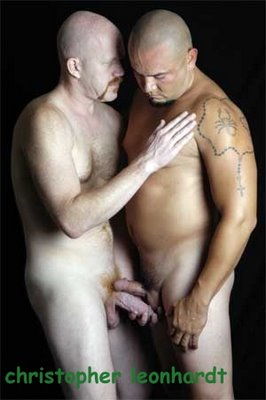 Religious conservatives meeting in Washington, D.C., lashed out at homosexual advocacy groups and organizations catering to the political Left on Monday.
Religious conservatives meeting in Washington, D.C., lashed out at homosexual advocacy groups and organizations catering to the political Left on Monday.
One participant criticized the "gay agenda," which he said calls for not only acceptance, but also "affirmation and celebration of this behavior as normal and even desirable."
The two-day conference, entitled "The War on Christians and the Values Voters in 2006," is sponsored by Vision America, an organization that describes its mission as "restoring Judeo-Christian values in America." Conference participants produced a "Values Voters' Contract with Congress," which includes key elements of the conservative, religious agenda.
Based on the Republican Party's 1994 "Contract with America," the "Values Voters' Contract" lists 10 aims, ranging from legislation to keep the words "under God" in the Pledge of Allegiance to laws guaranteeing greater religious freedoms in the workplace, prohibiting human cloning and embryo research, and guaranteeing a "right to life" to all children before birth.
Defending the family is a key goal of the so-called "values voters." The traditional or natural family is one of the targets of the political Left, said Peter LaBarbera, executive director of the Illinois Family Institute. He said he was proud to share the stage with "heroes in the fight for normalcy."
Peter Sprigg, the Family Research Council's vice president for policy, noted that the family "is not merely a social construct subject to infinite redefinition.
"We believe what makes a family is one man and one woman uniting in marriage for a lifetime and bearing children from that union," Sprigg stated. "We are against anything that threatens the traditional family or undermines that idea," including pre-marital sex, pornography, adultery and prostitution.
"And yes, we are also against the practice of homosexuality," he added.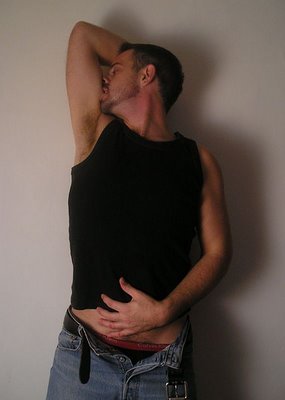
Sprigg said Christians do not hate homosexuals. "On the contrary, we desire the best for them. However, we believe engaging in behavior that is unnatural, immoral and dangerous to the public health and their own health is not the best thing for people with same-sex attractions."
He noted that the FRC and similar organizations also oppose the "gay agenda," which "demands full acceptance of the practice of homosexuality -- morally, socially, legally, religiously, politically and financially.
"Indeed, it calls for not only acceptance, but affirmation and celebration of this behavior as normal and even desirable," Sprigg said.
The Rev. Lou Sheldon, chairman and founder of Traditional Values Coalition, stated that the "gay agenda" would come to a quick end if Americans rose up in numbers against it.
However, "Christians are nice guys, and nice guys finish last," he added.
LaBarbera agreed with Sheldon's analysis. "By simply saying we oppose the sin and not the sinner, we leave the playing field to homosexual activists and their euphemistic talking points, which are 'discrimination,' 'equality' and that poor euphemism, 'sexual orientation,'" he said.
Regina Griggs, executive director of Parents and Friends of Ex-Gays and Gays, said that while everyone is a sinner, homosexual behavior can have especially dangerous results. For example, the Centers for Disease Control and Prevention stated that in 2002, 49 percent of AIDS cases resulted from sexual relations between two males 13 to 24 years of age.
While most speakers said they prefer using the word "homosexual" instead of "gay," Sheldon said he usually sticks with the term's original meaning: "sodomite."
A number of organizations were criticized for supporting the "gay agenda," though one group in particular -- the American Civil Liberties Union (ACLU) -- was the subject of another panel decrying its "radical secularization" efforts.
Mike Johnson, senior legal counsel of the Alliance Defense Fund, noted that the ACLU has always had a subversive agenda and is the "number one religious censor in America" due to its skillful use of fear, intimidation and misinformation.
One method the ACLU uses to "chip away at the moral and religious foundation of America" is to silence the gospel by removing any references to God in the public square, he said.
However, Mat Staver, founder, president and general counsel of the Liberty Counsel, noted that since Samuel Alito replaced Sandra Day O'Connor on the U.S. Supreme Court, he's noticed a growing reluctance on the ACLU's part to attempt appeals to the highest court in the land.
"Maybe they realize the Supreme Court isn't their social engineering friend anymore," Staver said.
William Donohue, president of the Catholic League, said he has been battling the ACLU for decades, and is encouraged by the "great work" being done by such groups as the Alliance Defense Fund and Liberty Counsel.
Donohue said he has discovered why the ACLU files so many lawsuits to try and force communities to take down nativity scenes. "It's because there aren't three wise men and a virgin in the entire ACLU."
The Human Rights Campaign (HRC), which describes itself as the nation's "largest gay, lesbian, bisexual and transgender advocacy organization," says its goal is to ensure that "all GLBT people are ensured of their basic equal rights, and can be open, honest and safe at home, at work and in the community.
"By inspiring and engaging all Americans, HRC strives to end discrimination against GLBT citizens and realize a nation that achieves fundamental fairness and equality for all," the group's website states.
The ACLU's Lesbian & Gay Rights Project brings "impact lawsuits" in state and federal courts throughout the country, according to the group's website.
"Our legal strategies are built on the idea that fighting for civil rights means not just persuading judges but ultimately changing the way people think," the group states.
from Cybercast News Service
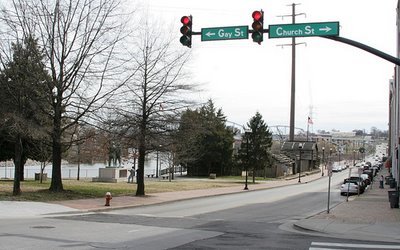 A Lutheran church in San Francisco installed an openly gay priest as its lead pastor, setting itself up for a possible confrontation with the Evangelical Lutheran Church of America.
A Lutheran church in San Francisco installed an openly gay priest as its lead pastor, setting itself up for a possible confrontation with the Evangelical Lutheran Church of America.
With prayers and hymns, the Reverend Robert Goldstein took over as lead pastor of the Saint Francis Lutheran Church on Sunday.
The 61-year-old Goldstein says the Lutheran churches in the United States are polarized over whether openly gay and lesbian ministers who are sexually active should serve as pastors.
The denomination does ordain openly gay and lesbian clergy, but requires them to remain celibate.
Martin Luther ended celibacy as a requirement for priests when he founded the church in the 16th century.
"It's part of a struggle. Today it's also part of a celebration,” Goldstein told KCBS reporter Henry Mulak after the service.
The pastor expects that in the end, the entire denomination will follow the example being set by St. Francis, which holds that the national body’s double standard on celibacy violates one of the founding principals of the faith.
"This congregation's been a leader in that, and because it was a leader, it was removed from the roster of congregations of the Evangelical Lutheran Church in America,” Goldstein said.
St. Francis was expelled from the denomination for ordaining a gay man and a lesbian in 1995.
Goldstein still a member of the that body and could face expulsion for serving in the San Francisco church.
“Serving this congregation is a way of bearing witness to the larger church that one of your pastors is here, serving this congregation with joy and faith and confidence,” Goldstein said.
from CBS 5
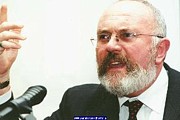 DUBLIN, IRELAND - Irish Senator David Norris, the first openly homosexual politician elected in Ireland, has compared Pope Benedict XVI to Hitler for the Catholic Church's stand against homosexuality.
DUBLIN, IRELAND - Irish Senator David Norris, the first openly homosexual politician elected in Ireland, has compared Pope Benedict XVI to Hitler for the Catholic Church's stand against homosexuality.
Speaking of the Pope, Norris said he would refuse to take "moral instructions from a man with a swastika on his arms." The reference is an apparent allusion to the forced involvement of Joseph Ratzinger as a youth with the Hitler youth.
The Senator who is actively anti-Catholic and according to some reports has been identified as taking part in the controversial anti-Catholic Orange marches, refused to back down from his comments. He said that the teachings of the Catholic Church on homosexuality are "in line with the prejudices that included Hitler and Himmler". Those teachings, which adhere to traditional Christian moral teachings from the time of Christ, determine homosexual acts as "acts of grave depravity" and the homosexual inclination as "objectively disordered".
from Life Site
 TENNESSE - While some Metro Council members believe surveillance cameras are needed to deter unlawful sexual activity in Metro parks, a funding plan they have offered may be out of bounds.
TENNESSE - While some Metro Council members believe surveillance cameras are needed to deter unlawful sexual activity in Metro parks, a funding plan they have offered may be out of bounds.
Metro Council members from Madison, Antioch-Priest Lake and Donelson have proposed using $20,000 from a special pot of city money to buy the cameras and equipment.
The funds are available, said Gene Nolan, associate director of Metro finance, but the cameras might not fit the spending criteria for that money, which is earmarked for infrastructure projects such as road paving, sidewalk construction, median improvements, neighborhood signs and playgrounds.
"The camera issue is a gray area," Nolan said, adding that the Legal and Finance departments would make a decision this week on whether cameras qualify as parks infrastructure.
In the past, city officials have found that other proposed projects — such as buying computers — don't qualify. That's because they wear out in a few years and are not really infrastructure improvements, Nolan said.
Still, council members Vivian Wilhoite of Antioch-Priest Lake, Michael Craddock of Madison and J.B. Loring of Donelson each pledged about $6,666 from a special council discretionary fund to purchase the cameras.
There is about $1.6 million in that fund.
The three council members want to place surveillance cameras at Hamilton Creek, Cedar Hill and Two Rivers parks, which are in their districts.
The three parks have become notorious through the Internet as rendezvous points for men seeking sex, officials say. Park-goers and undercover police officers have said they have witnessed men exposing their genitals, engaged in oral sex or masturbating in public. Metro and park police issued about 300 indecent exposure citations in Metro parks last year.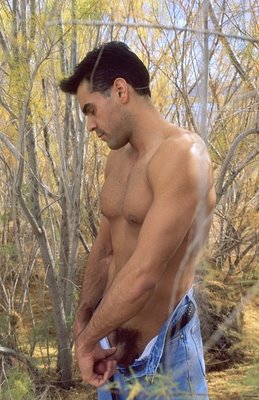
Installing the cameras "is aimed at making that place a family park," Loring said of Two Rivers Park. "It's a beautiful place for families to go, have picnics, kids to run around, throw little pebbles in the lake. It got to where decent people wouldn't go in there."
Craddock, who sponsored a council resolution that passed last year requesting the Parks Board to install the cameras, said he would not give up if city officials determine that using the discretionary funds is improper.
Instead, he said, he'll try to change the rules for spending that money.
There is not universal support for them, however.
Fred Frazier, who lives near Two Rivers Park in Donelson Hills, said cameras in a few parks might shift the problem to parks without surveillance.
"I can see some strong arguments against it," Frazier said. "And I'm afraid that if we do take two or three parks that are known trouble spots and put cameras on them, the people will just go to other parks that don't have cameras."
Additionally, the American Civil Liberties Union of Tennessee has objected to the cameras as being ineffective and costly.
Hedy Weinberg, executive director of ACLU Tennessee, previously said the program would begin "an inevitable slide toward an expansive surveillance system" and would pose a threat to privacy, speech and associational activity.
Wilhoite said that even though cameras couldn't be peering into every corner of the park all the time, they would serve as a "security tactic" to discourage public sex acts.
"I do see it as a scare tactic. I also see it as a way of conditioning the mind," Wilhoite said. "Don't come into this area because we're going to catch you, and we're going to prosecute you. It's a mindset thing."
Wilhoite said that if the cameras showed initial positive results, city officials might wish to purchase more.
from Tennessean.com
 Robin Maguire doesn't shy away from putting her hand literally in the goo.
Robin Maguire doesn't shy away from putting her hand literally in the goo.
"I was, in a way, responsible for my own baby," Maguire said in a recent interview as she dabbed a glob of an odorless, colorless substance made from carrageenan into her hand.
Maguire, a biomedical researcher for the Population Council and co-chairwoman of the biannual global conference on microbicides in South Africa next month, considers the substance her “baby” because she is largely responsible for giving it new commercial life.
Carrageenan has been used for years in toothpaste, ice cream, shampoo and champagne, but Maguire found that it also could be used to produce substances that can prevent sexually transmitted diseases in women when applied vaginally within 48 hours of exposure.
These substances, known as microbicides, represent a potential breakthrough in contraception and the prevention of sexually transmitted diseases.
The biggest breakthrough, some say, since the condom or the pill.
“I believe the future belongs to microbicides," said John Fidi, founder of Condom Depot, an online condom store. "I come from the school of progressive thought and believe that condoms will most likely be obsolete down the road when a safe microbicide is developed."
Current trial microbicides come inside tubelike applicators designed to help a woman apply them internally. They are most effective when applied within 24 hours of sexual activity.
Microbicide research is important because HIV rates are rising in women.
Women account for 27 percent of the cases of HIV infection in America, up from 7 percent 20 years ago, according to recent remarks by Dr. Anthony S. Fauci, director of the National Institute of Allergy and Infectious Diseases at the National Institute of Health. Worldwide, there are 17.5 million women (46 percent of the total adult cases) with HIV, an increase of almost 1 million infections since 2003.
Rep. Christopher Shays, R-Conn., has introduced legislation in Congress that would increase financing for microbicide research.
"In many settings, the typical woman who gets infected with HIV has had only one partner, her husband," Shays said. "Microbicides would allow these women to protect themselves against the spread of disease.”
Social workers and health care professionals say microbicides will give women greater control over their sexual health, because the pill does not prevent sexually transmitted diseases and some women cannot count on their male partners to always wear a condom.
Even when men are given a choice of condoms, including those designed to enhance their sexual pleasure, they don't necessarily use them, according to a study by Family Health International, a nonprofit group that is researching microbicides.
The study also found that a microbicide used regularly gives a woman more protection than a traditional product like a condom that is used infrequently. A separate study by Dr. Kenneth H. Mayer of Brown University released last month found that 94 percent of women are ready to "definitely" or "probably" use the gel if it were available.
But micobicides may still be years away from commercial availability. One reason is that researchers and doctors are still unsure how HIV spreads in women.
"Not enough is known about the earliest moments of HIV's interaction with the human body," said Dr. Rowena Johnson, director of research at the American Foundation for AIDS Research.
"The more we know,” she said, “the better equipped we will be to develop a broader range of inventions--drug treatments used before or shortly after exposure to the virus, a microbicide or even a vaccine--to break the link in the chain of events leading from HIV transmission to established infection."
Another reason is lack of research financing.
Only 2 cents of every dollar spent by pharmaceutical companies go to microbicide development, and that could make it difficult to place microbicides on the commercial market even by 2010, according to American Foundation for Aids.
But Maguire and others remain hopeful that a commercial product can be developed sooner, perhaps in the next year or two.
Results from the third and final trial of the gel, called Carraguard, are due in April 2007, and it will take about two months to produce the finished product if the tests, being conducted in South Africa, go well.
Maguire said that means Carraguard could be registered as a drug either in the United States or in South Africa next year.
"We are blazing the trail in an unknown field," Maguire said.
from INS News
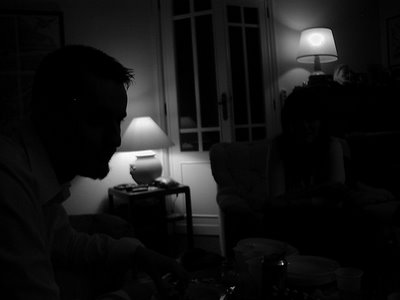 Nearly two thirds considered killing themselves and 30% self harmed, a survey disclosed.
Nearly two thirds considered killing themselves and 30% self harmed, a survey disclosed.
The scale of the hidden emotional torment among non-heterosexual men, aged under 25, emerged in findings in advance of a major national conference in Belfast which will consider calls on the British Government to fund training and resources on different sexual orientations to all professionals working with young people, including teachers, youth workers and health and social services staff.
Three years of research among 190 young men which was carried out by the Rainbow Project revealed one third were diagnosed as having a mental illness at some time in their lives with almost as many having had a potential psychiatric disorder.
A quarter had attempted suicide; over two thirds thought about taking their own lives while four out of five who had suicidal thoughts indicated they were related to same sex attraction.
Among the key factors which contributed to suicidal thoughts and self harm were homonegative experiences in school, bullying, homophobia from other pupils and neighbours.
According to the survey, different factors which affected their mental health were:
:: Difficulties in accepting their sexuality
:: A shortage of people who understood what they were going through
:: Homophobia at home, within society and at schools, even among teaching staff.
:: Loneliness and isolation.
The findings will be debated at a conference in Belfast tomorrow to be opened by the Chief Commissioner of the Equality Commission for Northern Ireland, Bob Collins.
The research entitled `Out on Your Own` claimed blatant homophobia and negative attitudes within many families resulting in young gays moving away. Outside the houses, the same attitudes were widespread throughout Northern Ireland.
Repeated instances of homophobia had a negative affect on their mental health, and the survey claimed the needs of young same sex attracted men were currently not being met.
With limited support available in school and family settings, young men and women had no choice but to seek out other lesbians and gay and bisexual men (LGB) through the internet and gay scene. It was invaluable to some.
But the findings added: "However these avenues often do nothing to discourage self destructive behaviours, such as alcohol or drug misuse or unsafe sex and they may not provide a supportive milieu for a young man who is lacking in self-confidence."
It said addressing the mental health needs of young gays was not a straightforward task.
Lesbian, gay and bi-sexual youth groups, personal development courses and individual counselling all had parts to play.
Changes also needed to be made to the psyche of our culture, and despite the changes to legislation, there were still many facets of society that were heterosexist and homophobic.
The findings added: "The needs of this population must be included in the strategic planning of organisations that work with young people, accompanied by inclusive polices which address the needs of lesbian, gay and bi-sexual people and staff training.
"It is only when all sectors begin to be inclusive of LGB people that this acceptance can filter through to the rest of society."
from U. TV
 Oscar may have snubbed "Brokeback Mountain," but the so-called gay cowboy movie was tops with a gay watchdog group on Monday, adding the top prize to its burgeoning roster of honors at the GLAAD Media Awards.The Gay and Lesbian Alliance Against Defamation named the film, which lost an Oscar for best picture to "Crash," the year's best wide release motion picture at its 17th annual awards.
Oscar may have snubbed "Brokeback Mountain," but the so-called gay cowboy movie was tops with a gay watchdog group on Monday, adding the top prize to its burgeoning roster of honors at the GLAAD Media Awards.The Gay and Lesbian Alliance Against Defamation named the film, which lost an Oscar for best picture to "Crash," the year's best wide release motion picture at its 17th annual awards.
Director Ang Lee accepted the award, commenting: "Finally, an award that actually means something."
Noting that "Brokeback Mountain" had won a slew of awards, Lee said, "Some of these are very meaningful to me.
"OK, there was that one that got away, but that's OK," he quipped.
Lee, who received a standing ovation from the audience at a Manhattan hotel, said it would likely be "the very last award I will accept for 'Brokeback Mountain' ... And to end the journey here tonight is like coming home. The fact is 'Brokeback Mountain' has helped to change the world."
Other winners of GLAAD's annual awards, which recognize mainstream media for "fair, accurate and inclusive representations" of the gay community, included Newsweek for magazine coverage, the FX reality program "Straight/Gay 30 Days," and ESPN's SportsCenter for its news segment "Andrew Goldstein," which profiled a gay lacrosse goalie.
Presenters included Oscar-winning actor Michael Douglas and comedienne and actress Sandra Bernhard. Writer-actor Bruce Vilanch, who has written the Oscar shows for several years, hosted the evening.
GLAAD was formed in New York in 1985 in response to sensationalized AIDS coverage by tabloid newspapers and local news stations.
from Backstage
 In my business, it's only fair to acknowledge a bias. My bias is named Ruthie.
In my business, it's only fair to acknowledge a bias. My bias is named Ruthie.
Ruthie is the youngest cousin in a bumper crop of babies that have extended our family over the last few years. When she was adopted, we didn't pass out cigars, we passed out Baby Ruth bars. So maybe it's our fault that she's now in the sugar-rush stage of toddlerhood, leaving her parents joyously breathless and regularly transforming her grandmother's house into Early Childproof Decor.
Did I mention that Ruthie has two daddies, something her toddler cousins take for granted? Did I mention that Ruthie's birth mother chose this couple to raise her, picking these two men from all the dossiers at the adoption agency?
Ruthie is why I take it personally when the Vatican calls gay adoptions ''gravely immoral" or says that such adoptions ''mean doing violence to these children." Ruthie is why I grimace when Russell Johnson, chairman of the Ohio Restoration Project, says, ''experimenting on children through gay adoption is a problem." Ruthie and her parents are not an experiment. They are a family. Part of my family.
Once again, we are back to the subject of gay adoption. This month, Catholic Charities in Boston was called on the Vatican carpet. For years the agency had operated a kind of ''don't ask, don't tell" policy. Over the course of two decades, Catholic social workers had placed 13 children with gay parents, saving most from the revolving door of foster care.
But Roman Catholic law forbids gay adoption, and Massachusetts state law forbids discrimination. Faced with a conflict, the bishops overrode the board of Catholic Charities and ended its long and cherished role in adoption.
Now this issue is rolling out across the country, all the way to San Francisco. There, the new archbishop appears to be on a similar collision course with Catholic Charities and secular laws.
In Massachusetts, Governor Mitt Romney, nodding madly to conservatives in his bid for a presidential run, has filed a bill to grant a religious exemption to discrimination laws. But if you give one church permission to discriminate against gays, what's next? Permission to discriminate against blacks or Jews who want to adopt? Isn't that where we came from?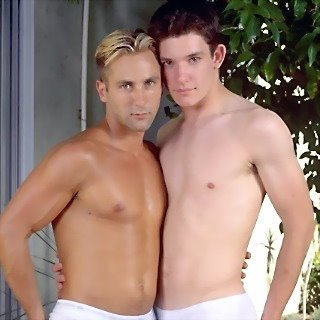
It seems that many see gay adoption as another issue to rally the right in the culture wars. There are now efforts underway in 16 states for laws to ban gay adoptions. These would add to a crazy quilt of state laws ranging from Florida, which bans gay adoptions but allows gay foster parents, to Mississippi, which bans adoption by gay couples but not gay singles, to Utah, which prohibits all unmarried couples from adoption.
But let's put my Ruthie bias aside for the moment. Let's even put aside the studies that support my bias: A comprehensive review of them coming out next week from the Evan B. Donaldson Adoption Institute shows again that children of gay parents do fine.
If some still insist that it is ''gravely immoral" to raise children in gay households, what exactly do those wedge-drivers propose to do?
We have always had gay parents. Most had children the old-fashioned way, hiding their sexuality as long as they could. Now they can also do it the new-fashioned way with every reproductive aid from sperm bank to surrogate.
A researcher analyzing the 2000 Census estimated 250,000 kids being raised by same-sex couples. If gay parenting is harmful, do we take children away from their biological gay parents? Do we make it unlawful for gays to use fertility technologies? How? If there are states that allow gay adoption, would we ban interstate travel for that? And what do we say to a birth mother who picks a gay couple? No?
Today 60 percent of agencies accept applications and 40 percent knowingly place children with gay parents. Social workers, whether at religious, state, or private agencies, want only one thing: to find safe, good homes in a country with 500,000 children adrift.
''The effect of all this opposition is not to prevent gay people from becoming parents," says Adam Pertman of the Donaldson Adoption Institute. ''All it can do is diminish the pool of mothers and fathers for children who need homes."
We all talk about ''the best interest of the child." What makes up that interest? On my list are attention, love, security, humor, and a besotted family racing to keep one step ahead of a toddler. Of course, a little bias on that child's behalf never hurts.
from Boston.com By Ellen Goodman
 SACRAMENTO, CALIFORNIA – Registered domestic partners will continue to get the same tax benefits as married couples who transfer property under a recent court ruling that upheld a 2003 decision granting that right.
SACRAMENTO, CALIFORNIA – Registered domestic partners will continue to get the same tax benefits as married couples who transfer property under a recent court ruling that upheld a 2003 decision granting that right.
The ruling last week by the Sacramento County Superior Court Judge Jack Sapunor upheld the California Board of Equalization decision to extend to domestic partners a property tax exemption originally written for spouses.
Under tax code dating back to 1979, people who inherit property after the death of their spouses are exempt from the category of “change in ownership,” which would subject them to reassessment of the property's value.
The board's rule change was inspired by several cases in which surviving partners were forced to sell their homes because they couldn't afford to pay the higher taxes once the property was reassessed.
But county tax assessors who opposed the rule change sued last year, fearing it could invite tax cheating and cut revenue. They argued that the board's decision was unconstitutional because domestic partners were not included in the original tax law passed by voters.
Sapunor rejected that argument, in part citing a law that since was passed by state lawmakers that explicitly granted property transfer rights to domestic partners. The law – authored by state Sen. Carole Migden, D-San Francisco, who also had spearheaded the board's decision as its then-chairwoman – took effect in January.
Shannon Minter, an attorney who represented Equality California, one of the intervening defendants in the lawsuit, called it “a significant victory” for gay rights.
“We're very relieved that the court affirmed this commonsense and humanitarian rule,” he said Friday.
Attorneys for the lead plaintiff, Sutter County Tax Assessor Michael Strong, did not return a call for comment.
from The San Diego Union-Tribune
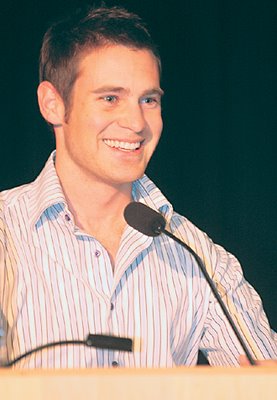 His boyfriend decided to leave the military for fear of being found out, he was practically a prisoner in his home for two years and his extended family doesn't speak to him anymore.
His boyfriend decided to leave the military for fear of being found out, he was practically a prisoner in his home for two years and his extended family doesn't speak to him anymore.
Those were just a few subjects that Danny Roberts, a former cast member of MTV's "The Real World," spoke about Tuesday night at Penn State Fayette, The Eberly Campus.
Roberts, 28, was a cast member of "The Real World-New Orleans" and achieved much recognition on the show as the only housemate who was openly gay.
He also gained popularity on the show for having his boyfriend, Paul Dill, who was an officer in the U.S. Army, on many episodes.
Roberts, who is from a small town in northern Georgia, said it was very hard to come to terms with his homosexuality.
"Where I come from, it's not a place that's very open-minded," Roberts said. "I had a very negative view of what gay is, and I believed all the stereotypes that gay people are sick and that they're pedophiles. I wanted nothing at all to do with gay people."
He said that it wasn't until he was in college at the University of Georgia that he realized that something was different about him.
"I played basketball with a guy named Andy, and a close friendship evolved," Roberts said. "Then I woke up one morning at Andy's house, and I realized that it was something else more than a friendship. I became angry with Andy, and made myself out to be a victim, and that Andy had done this to me. So, I discontinued the friendship."
He said that he didn't allow himself to be around people who were gay for fear that he would come to a realization that he was gay himself.
Roberts also explained that he tried to have straight relationships, but always found something wrong with the other person.
"It was either she was too short or talked too much," he said.
In his third year in college, Roberts said he met two men who were married to women, but were gay. He said that the men were trapped in their lives and miserable, but felt they were doing what was expected of them by society. That's when Roberts realized he was on the same path and finally "woke up".
"The hardest thing about being gay was admitting it to myself," he said. "Many people believe that being gay is a choice, and I tried to beat it out of myself. You have to break down many walls, and finally own it."
He graduated with a degree in French and international relations in the fall of 1999 and tried out for "The Real World" at the same time. That also was the time he decided to tell his parents about being gay.
"I did the typical 'coming out' on Christmas Eve night, a few weeks before I left to go on 'The Real World,'" he said. "So, I told myself, my parents and America all at the same time."
Roberts said his family had a hard time at first, but then came to terms with him being gay.
However, he said, his extended family doesn't want anything to do with him.
"I was actually very lucky because many times the story doesn't end the way mine did," Roberts said.
He also met Dill around the same time, so he was developing a relationship in front of America as well. Television producers blurred out Dill's face because he was an officer in the military and could have been dishonorably discharged or sent to prison if it was found out he was gay.
Gays in the military is something that Roberts said he has become passionate about.
He has become very outspoken about the "Don't Ask, Don't Tell" policy that the government created in 1993 that acknowledges there are gays in the military, but asks them not to tell anyone.
"How can our military be overseas trying to create freedom for other countries when some members of the same military aren't free to be who they are?" he said. "The government is essentially turning people away from the military."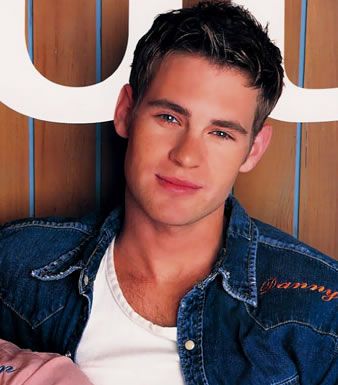
However, he said, it is time for some evolution in the "Don't Ask, Don't Tell" policy, and he thinks there will be some major change in the next five to 10 years.
Roberts also spoke about life after "The Real World" and the challenges that he and Dill faced.
"Paul and I moved to a small town in North Carolina where gossip spreads quickly and everybody knows who you are," he said. "Because Paul was still in the military, we couldn't go anywhere together or do anything together. And when you can't go to the grocery store with your significant other, something's wrong."
Roberts said Dill eventually made the decision to leave the military two years ago, and they moved to the state of Washington.
"On the West Coast, the gay issue is very much done with there," he said. "And things are becoming not so black and white when it comes to being gay and straight. There are many shades of grey evolving."
One of Roberts' main objectives now is speaking to college students and trying to educate them about coming out, tolerance and sexuality.
from The Herald Standard
 Yaounde - A newspaper publisher in Cameroon has been sentenced to two prison terms of six months each for publishing a list of alleged homosexuals, judicial sources said on Monday.
Yaounde - A newspaper publisher in Cameroon has been sentenced to two prison terms of six months each for publishing a list of alleged homosexuals, judicial sources said on Monday.
Nouvelle Afrique (New Africa) publisher Biloa Ayissi was convicted for defaming doctor Jean-Pierre Mayo and government Minister Gregoire Owona who were included in the list published earlier this year.
He was also fined four million CFA francs, or about $7 000.
Ayissi is the second publisher to be convicted for defamation in Cameroon since several journals printed lists of alleged homosexuals including government ministers, artists and Church dignitaries.
Cameroonian law provides for prison terms of between six months and five years and fines of up to 200 000 CFA francs for homosexual practices.
Ayissi said he plans to appeal.
from News 24
 Question: My husband of five months is a wonderful man, but he does something kind of different: He sometimes likes to wear my panties. He swears he's not gay; he just says they feel really good on his skin, and wearing them makes him feel closer to me. It's OK with me; I just find it a little odd, and hope he's never in an accident and has to explain why he's wearing panties. Is this just a phase? Am I crazy for being OK with it? -- Wondering Wife
Question: My husband of five months is a wonderful man, but he does something kind of different: He sometimes likes to wear my panties. He swears he's not gay; he just says they feel really good on his skin, and wearing them makes him feel closer to me. It's OK with me; I just find it a little odd, and hope he's never in an accident and has to explain why he's wearing panties. Is this just a phase? Am I crazy for being OK with it? -- Wondering Wife
Answer: There's a U.S. senator who can't speak publicly unless he's wearing pantyhose. He was a patient of Dr. William Stayton, a psychologist and leading expert on cross-dressing. "Underneath his blue suit and tie he wore pantyhose and a bra and women's underwear," Stayton told me in a recent interview.
"He was always worried somebody would lift his pant leg and see his pantyhose. But it was the only way he could calmly speak before the Senate." So, one man's Prozac is another man's pantyhose.
So what? My boyfriend compared the senator's cross-dressing to his own penchant for hats. "When I wear my Henschel High Roller I have a totally different outlook. You swagger a bit, you just know you're cool. I take the hat off, and I'm just another guy." Nobody worries about a man in a hat unless they're in a bank and the hat happens to be a ski mask.
And how about all those female executives who "dress for success" in male business drag? Maybe because we identify femininity with weakness but value masculine strength and power, nobody looks squinty-eyed at a woman in pinstripes -- or gives a second thought to women like me, who've been donning Calvin Klein boxer briefs for years.
No, I haven't been wearing them on the senatorial sly, under my clothes. They're the workout shorts I march around in at the gym. And don't forget that sexy staple of chick flicks, the "morning after" shot of the woman drinking coffee while wearing the man's big white shirt as a nightie. Of course, aside from specialty e-tailers, nobody would dream of selling men day-of-the-week undies in hibiscus pink -- or making movies where Keanu, Matthew or Will walks out in the woman's lavender teddy and matching maribou mules.
As your husband keeps insisting, just because a guy comes out of the closet in the wife's panties, it doesn't mean he's gay. While the public face of cross-dressing is flaming drag queens like RuPaul, most cross-dressers are straight. In a 1997 survey of cross-dressers by R.F. Docter and Virginia Prince, 87 percent said they were heterosexual. Stayton estimates the number to be "at least 95 percent." Not only that, 60 percent of Docter and Prince's respondents were married; 69 percent had kids. In an earlier study by Prince, 19 percent reported playing high school or college football. At least one married cross-dresser played professional basketball. That, of course, would be Dennis Rodman, who goes through more false eyelashes and feather boas than the chorus line at the Tropicana. Cross-dressers like your husband typically spend much of their week looking like the average Joe, not the not-so-average Jacqueline. Most enjoy being men, and have no interest in a sex change.
Stayton says they're often in very male-oriented occupations -- like firefighter, trucker or high-powered businessman -- they just have a feminine side they need to express to feel whole. For some, this starts as early as age 5, and no, it's not a phase, although they may do it more or less at different times in their lives.
Some find it erotic, especially at first, but many, like the senator, simply find it a pretty way to relieve tension. (Think of it as a frilly alternative to yoga or the after-work martini.) Of course, a husband's cross-dressing tends to have a less-than-soothing effect on a wife, especially if she comes home expecting her husband and walks in on some poorly assembled June Cleaver. If she can't get over the betrayal, or just plain can't deal, it's probably the end of the marriage. She'll blame her husband, but Stayton points to society's "awfulizing" of cross-dressing, causing the cross-dresser to feel guilt and shame for expressing the full range of himself as a person -- and leading to secrecy and the issues that ensue.
In your case, unless it unhinges your husband's life -- if he quits his job and stays home admiring himself in the mirror in bouffant wigs -- what's the problem? Sure, there could come a day when he starts stretching out your angora sweaters, or worse yet, over-plucking his brows. Until then, whatever floats your boat, or makes your skirt fly up -- or your husband's.
from Contra Costa Times
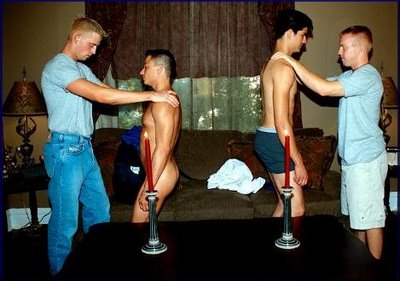 Of University Of Florida's 33 fraternities, none are tailored for gay students. Paul Nichols decided that needed to change.
Of University Of Florida's 33 fraternities, none are tailored for gay students. Paul Nichols decided that needed to change.
Nichols, who works for UF's Department of Housing and Residence Education, began efforts to found a Gainesville chapter for Delta Lambda Phi at the beginning of the year.
Delta Lambda Phi is a national social fraternity for gay, bisexual and progressive men, according to its Web site.
It will finish recruiting today. Four people have expressed interest in joining, Nichols said.
The Gainesville chapter will be a community-based chapter because it will allow UF and non-UF students to join. Because Delta Lambda Phi allows non-UF students to join, it will not be associated with the university.
Nichols said he got the idea after reading a story in the Alligator about students wanting to start a similar chapter last Fall.
"It kind of fell flat," he said. "That's why I kind of picked up the torch from that point."
Delta Lambda Phi has 22 chapters nationwide, including one at Miami's Florida International University - the only chapter in the state.
"Our overall goal is to help defeat stereotypes that gay men are all about clubs and parties and not giving back to their communities and cities," he said.
Nichols said the group will be very similar to other fraternities and will have an eight-week pledge process. The group's main difference, however, will be that any men over the age of 18 will be able to join.
"The only potential problem I see is that we may get people with a predatory motive who see this as a chance to get with a younger man," Nichols said. "We have safeguards in place to weed out those kind of people. This is not a place to go for dates."
SFCC student Caz Marciniak, 28, said he plans to pledge the group.
"I think having a community fraternity is a great thing," Marciniak said, adding, "I want to help people figure out who they are. It's going to be about helping people."
from Alligator Online
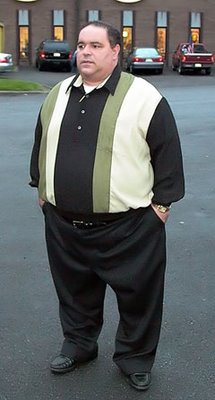 NEW YORK – Call him the Brokeback Mobster.
NEW YORK – Call him the Brokeback Mobster.
"My character in The Sopranos would say, 'It's the year of the queer,' " says Joe Gannascoli, who plays gay mobster Vito Spatafore in the HBO mob hit. "But then he's a real wisegay."
The Brooklyn-born actor, who for five seasons was one of the semi-regular wannabes in Tony Soprano's crew, had his biggest moment on the series last season when it was revealed that he was a closeted gay. It was never addressed again, opening yet another unanswered story line in the show, along with the Russian gangster who got away in the New Jersey Pine Barrens and the fate of Lorraine (Dr. Melfi) Bracco's rapist.
But Mr. Gannascoli is suddenly prominent in the opening episodes of the new season, jockeying for Tony Soprano's position while overcompensating for his secret state.
How does a knockaround heterosexual guy from the streets of Brooklyn feel about playing a gay character in the ultramacho TV show?
"I have no problem with it," he says. "I had read about a couple of real-life gays in the mob and suggested the idea to one of our writers, in the hopes of getting more work. Eventually it was incorporated. Some real macho guys on the set asked how I could do the role. But it was something I wanted to do.
"I used to work as a waiter in an all-gay restaurant named Company on Third Ave. in Manhattan," he says. "It was a great job. I got along great with the gay customers. I'm secure in my own sexuality, recently married, and I'm an actor. An actor acts."
He says playing a gay gangster made him more sensitive. "I was rooting like crazy for Brokeback Mountain in all the awards shows," he says. "And after five seasons in the background of one of the greatest shows in TV history, it was sure nice to get some recognition."
It's not as though Mr. Gannascoli isn't busy, though. In January, St. Martin's Press published his first hardcover novel, A Meal to Die For , a comical mobbed-up murder mystery set in the restaurant business of his native Brooklyn, where he founded the popular restaurant known as 101 in the shadow of the Verrazano Bridge.
"All the pieces of my life – food, gambling, Brooklyn – all come together in this semi-autobiographical book," says the once-obese Mr. Gannascoli. Especially food.
His friends call him "Joe Soup" because he once owned a restaurant in New York called Soup as Art. He recently lost 200 pounds with stomach surgery, down from more than 400. (He appeared on the TV show Celebrity Fit Club, in which stars try to lose weight competitively – but he gained 12 pounds.)
"I grew up on Gravesend Neck Road and Avenue U," says the actor, who now lives with his wife, Diana, on Long Island. "My brother became a lawyer, so I went to St. John's for a couple of years, following his footsteps into law."
But Mr. Gannascoli loved food more than school and dropped out of college after two years to work in restaurants, apprenticing under the great chefs of Manhattan.
"And I wound up working in Commander's Palace in New Orleans," he says, "considered by many as the best restaurant in America."
In 1986, Mr. Gannascoli was back waiting tables at Jack's restaurant in Manhattan, where he met an actor-waiter who suggested he audition for a play called The Juicemen. "I got the role. I got bit by the acting bug."
Mr. Gannascoli landed small stage and film parts. But food always beckoned. In 1990, Joe Soup opened 101 and in 1992, 101 Seafood.
"But the most expensive thing on my menu was my gambling," says Mr. Gannascoli. "To pay off debts, sometimes I'd move cases of shrimp that fell off the back of a truck. Or expensive wine. Or olive oil. I was a food fence.
"Those experiences formed the autobiographical character in my novel. But the day I lost $60,000 on four football games, I made a deal for my partner to buy me out and I flew to LA to become an actor."
Mr. Gannascoli spent three years in LA, hustling film roles. He came back to New York, landing small parts in films such as Two Family House, Mickey Blue Eyes and Money for Nothing, where Benicio Del Toro introduced him to Georgianne Walken, who was casting The Sopranos.
He was cast as Vito, whose biggest moment was "whacking" Jackie Jr. in the season three finale. Until, that is, last season, when we learned that Vito was a closet homosexual, a capital crime inside the mob.
from WFFA 8
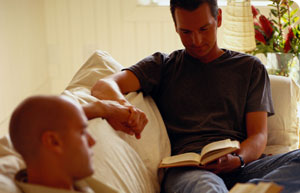 ARLINGTON, OHIO - Parents and concerned citizens say they don’t want gay newspapers in the lobby of their library.
ARLINGTON, OHIO - Parents and concerned citizens say they don’t want gay newspapers in the lobby of their library.
Walk into the Upper Arlington Public Library in Ohio and you’ll be confronted by a gay newspaper that routinely has graphic sexual content. The Outlook Weekly is in a rack in the lobby that holds other free community papers. Library trustee Bryce Kurfees is worried that young eyes could get more than they can handle from the Outlook and he wants the paper removed. He’s especially concerned because the library shares its parking lot with an elementary school a scant hundred yards away.
“What I want to do with them is toss them out. There’s no reason that we need to accept free newspapers that are just dropped off at our front door, especially ones that are obscene.”
Kurfees isn’t the only one complaining. The American Library Association reports that attempts to remove gay themed literature are on the rise around the country, increasing by more than twenty percent in a single year. The ACLU, which did not return our calls for comment, is threatening a lawsuit if he does. Kurfees is determined not to give in
“And I’m concerned that if we can’t draw a line at pornographic articles, then it appears that we can’t draw the line anywhere.”
Alan Chambers of the ex-gay ministry Exodus says homosexuals use these periodicals mainly for one purpose.
“The way I see gay newspapers is they are a means for mostly homosexuals to hook up with other homosexuals or materials that promote pornography.”
He knows from experience that certain young men are vulnerable to this sort of pornography.
“A young person could find and look through and eventually get involved in something that was detrimental or dangerous to his health and his well being.”
And a dangerous lifestyle is the last thing a boy should be checking out of the library.
from Family News In Focus
 The Babylon, a swank bathhouse in the heart of Bangkok, is where Thailand's gay middle class come to flex their muscles, sip a cappuccino and, most of all, seek out anonymous sex.
The Babylon, a swank bathhouse in the heart of Bangkok, is where Thailand's gay middle class come to flex their muscles, sip a cappuccino and, most of all, seek out anonymous sex.
But for AIDS activists, the dark hallways and tiny rooms where men gather also are a cause for concern that increasing unprotected sex in bathhouses and other gay hot spots across Asia is helping spread HIV.
"For those who go to a bathhouse, they want to just have fun. Sometime when they meet people, they are living in the moment and don't worry about a condom," said Phucid Junsaengsook of the Rainbow Sky Association of Thailand, which supports rights of sexual minorities.
"This really worries me," he said. "It's not about only one person's health. It's about everyone around them. I have a lot of friends who contracted HIV just because they had unprotected sex once."
The majority of new HIV infections across the Asia-Pacific region have in recent years been among sex workers and drug addicts. But new data suggested that HIV rates among gays and bisexuals are rising.
HIV rates among homosexual and bisexual men in the Thai capital Bangkok increased from 17 percent in 2003 to 28 percent last year, according to study by the Thai government and the U.S. Centers for Disease Control and Prevention.
Similar trends were found elsewhere in Asia, where 2005 surveys from the U.N.-funded surveillance network Monitoring the AIDS Pandemic, found that among men who have sex with men, the HIV positive amounted to 18.8 percent in Mumbai, India, and 12.8 percent in Phnom Penh, Cambodia.
"This new data is an alert to Asia-Pacific nations," said Jeanine Bardon, regional director of U.S.-based Family Health International. "This suggest the epidemic has been there for sometime. You don't get 28 percent over night. It's a big alert for people to respond."
Bardon and others said Asia-Pacific countries have largely downplayed HIV rates among homosexuals. Some conservative societies, she said, are loath to acknowledge that men have sex with men while others are simply hostile to gays - including many countries which ban homosexual activities.
In countries such as Pakistan, the Philippines and Indonesia, homosexuals are not even recognized as a vulnerable group, said Prasada Rao, regional director for UNAIDS.
Policies in the Pacific island nation of Fiji are typical of the hurdles faced by homosexuals. There, homosexual acts are punishable by up to 14 years in jail and flogging under a rarely administered 1944 law. Last year, Fiji courts sentenced an Australian university lecturer and a Fijian man to two years in jail for homosexual acts - a ruling endorsed by the prime minister who labeled it a sin.
Malaysia's tough policies
Authorities in Malaysia - a conservative Muslim country where homosexuality is illegal - have in recent weeks cracked down on the gay community, raiding bathhouses and bars frequented by gays, activists said. Hardline Muslim groups have demanded authorities pass harsher penalties against homosexuality.
Gays are routinely arrested in India, where homosexual sex is a crime punishable by up to 10 years in prison.
The result of these heavy-handed policies, activists said, is that homosexuals miss out on safe sex messages and are unlikely to be distributed condoms. Many homosexuals also are harder to reach because they fear being exposed and discriminated against.
As a result, condom use among gays is lower than other risk groups and most homosexuals surveyed in many parts of Asia don't know unprotected sex is dangerous. Only 6 percent of homosexuals in Vietnam said they were at risk for HIV, the U.N.-funded AIDS survey found, and similar patterns were repeated in China, Pakistan, the Philippines and Nepal.
"HIV/AIDS intervention throughout Asia have focused attention on the issue of unprotected heterosexual sex, while maintaining a deathly silence on the subject of sex between males," the survey said.
Taking risks
Increased openness among gays in places like Thailand has also led to more risk-taking, Phucid and other activists said. Drugs, too, have played a part.
The Babylon - where men eye one another dressed in little more than a towel and sandals - demonstrates the challenges facing AIDS activists.
The bathhouse provides customers with one condom and safe sex posters hang from the locker room wall. But many of the men interviewed admitted the spontaneity and anonymity of the sex leads them to let their guard down.
"Sometimes when you use a condom, you don't get the same feeling," said a 36-year-old cosmetics executive who gave his name only as Ake. "Maybe I'll use a condom the first time. But if I trust somebody, then I won't use it."
Thai authorities are trying to change such attitudes as part of anti-AIDS campaign unveiled in February.
Featuring billboards and print ads that prominently feature a man's backside and the message "What Are You Thinking," the campaign encourages condom use and warns about the risks of unsafe sex. It will include voluntary counseling, treatment and condom distribution in parks, discos and other venues where gays gather.
"We don't think we are too late. There are still a lot of (homosexuals) who are not infected," said Sombat Thanprasertsuk, director of the Thailand's AIDS bureau.
"We want to protect this younger generation. They must be informed and made aware of this problem."
from Taiwan News
 VATICAN CITY - Pope Benedict, speaking just 10 days ahead of Italy's national elections, lashed out against gay marriage and abortion on Thursday and said the Church had the right to speak out on thorny political issues.
VATICAN CITY - Pope Benedict, speaking just 10 days ahead of Italy's national elections, lashed out against gay marriage and abortion on Thursday and said the Church had the right to speak out on thorny political issues.











 By comprehensive, I don't mean, "Don't do it, but if you do, wear a condom." Students should be told about all the risks, physical, emotional, and relational, with good information and correct statistics. They should be told about what condoms can and cannot do. They should be taught more than just, "Don't do it," but should be given tools that will help them avoid situations where they'll be tempted. They should also be taught about what a healthy relationship looks like and learn tools on how to say "no" to unwanted sexual pressure.
By comprehensive, I don't mean, "Don't do it, but if you do, wear a condom." Students should be told about all the risks, physical, emotional, and relational, with good information and correct statistics. They should be told about what condoms can and cannot do. They should be taught more than just, "Don't do it," but should be given tools that will help them avoid situations where they'll be tempted. They should also be taught about what a healthy relationship looks like and learn tools on how to say "no" to unwanted sexual pressure.



























